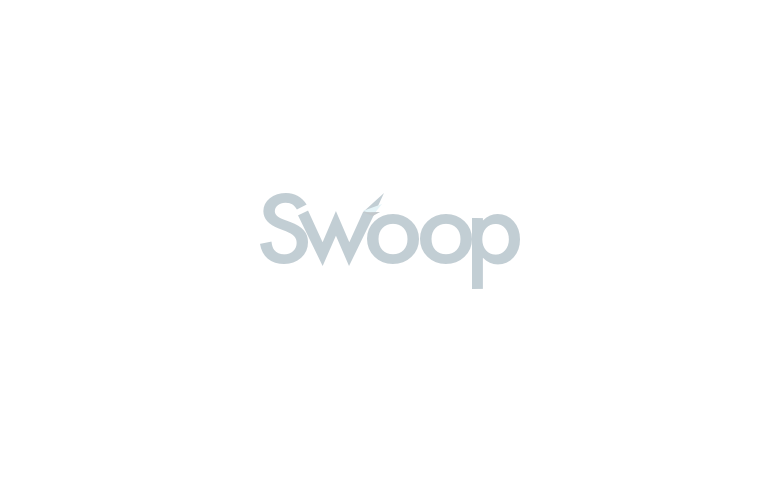TABLE OF CONTENTS
A secured business loan allows to you to access finance by offering
up an asset such as property as security against the amount you borrow.
Page written by Michael David. Last reviewed on October 3, 2024. Next review due April 1, 2027.

If you’re a Canadian business that owns assets you can provide for collateral, you might be able to qualify for a secured business loan. But why wonder about it when you can apply in minutes? We’ll sift through the options from banks and other lenders to find the money you need, fast.
A secured business loan is a type of loan where you put up collateral in exchange for receiving a lump sum of money. If your business makes all the loan payments on time, your collateral is safe. But if your business fails to make payments, the lender may be legally entitled to take ownership of your collateral.
This can be contrasted with an unsecured loan, which does not require you to offer assets as security. Instead, the lender will base the loan terms mainly on your credit history, income and cash flow projections.
With a secured business loan, the lender will consider not only the creditworthiness of you and your business, but also the value and nature of the the collateral you are pledging as security.
The lender will ultimately determine something called the loan-to-value ratio. For example, they might be willing to lend you 75% of the value of your home, since it provides solid security for a loan. They might be willing to lend 90% of something even more stable and liquid, like cash, but only 50% of something less predictable, like inventory.
Once the amount of the loan is determined, the lender will advance you a lump sum that you will repay in equal installments, usually monthly. Because your loan is secured by collateral, you can generally expect to have a longer period of time to repay the loan and a lower rate of interest than a borrower with an unsecured loan.
If your business fails to keep up its payments, the lender has the legal right to seize your collateral to repay the loan. The specific terms and conditions surrounding this are covered in your loan agreement. If you run into trouble, you may be able to avoid this outcome by talking to your lender or exploring refinancing options.
Your collateral can be almost any asset of value owned by the guarantor(s) of the loan, either you or your business. It might be more appealing to pledge your business assets only, in order to avoid risking your personal home, car or other possessions. In reality, personal assets are often required to provide the lender with enough security.
Here are some common forms of collateral used by small business owners across Canada:
Real estate is one of the most common forms of collateral. This can be commercial or personal property, whether it’s vacant land, a factory or your own private residence.
Equipment can be used as collateral whether the loan is to buy the equipment itself, or for some other purpose in your business.
Vehicles can be provide the security for car or truck loans, or can be pledged as collateral for other types of loans.
Inventory may serve as collateral for the loan you use to purchase it.
Accounts receivables can be used as collateral in some situations, where the lender is repaid when customers pay their invoices.
Cash or other financial assets can be a desirable form of collateral for lenders, as they can easily be repaid in the event that you default on the loan.
Secured business loans are an important tool for small business owners across Canada. However, there are other common types of secured loans that you are probably already familiar with:
Mortgages are a form of secured loan. The lender gives you a lump sum in order to purchase a home, and the home serves as collateral.
Car loans are common secured loans. A bank or automotive finance company usually places a lien on your car that allows them to repossess it if you fail to repay the loan.
Home equity lines of credit are not exactly loans, but rather a form of revolving credit that is secured by the equity in your home.
Here are three fictional examples that show you how a secured business loan can work for a small business:
An online retailer is experiencing tremendous sales growth, so it needs to place a large order for more inventory from its supplier overseas. The company was able to borrow 50% of the money for the order by pledging the inventory as collateral.
A welding business needs to purchase $40,000 worth of new equipment for its shop. By pledging the new equipment as security for a loan, a lender was able to advance the money today and give the company 10 years to repay it.
A massage clinic is ready to expand to a second location, and requires money for a new lease, staffing and marketing. The owner of the company has $100,000 of equity in her home, and was able to borrow $70,000 to put towards expanding her business.
Join Swoop and we’ll scan the market to find the best rates for the type of funding you need.
Sometimes a secured business loan is the only option, especially if you lack the credit score or cash flow to qualify for an unsecured loan. But even if you have a choice in the matter, you might want to consider these pros and cons:

Pros
Secured business loans offer several benefits:
You can get started in minutes when you join Swoop.

Cons
The main drawback of secured business loans is that, if something goes wrong and your business struggles to repay the loan, the lender could seize your assets. That means there’s more at stake than with an unsecured loan.
A secured loan may also involve upfront legal and valuation fees and require more time – sometimes weeks – before you receive funding. This is because the lender must do additional work to evaluate your collateral.
When you take out a secured business loan, you offer collateral to the lender such as real estate, vehicles or machinery. If your business stops making payments, the lender has the legal right to take the assets that were pledged as collateral.
When you take out an unsecured business loan, there is no collateral. Instead, the lender will base the loan terms mainly on your credit history, income and cash flow projections.
Both types of loans are popular with small and medium-sized businesses in Canada.
Yes, commercial and residential property are both common forms of security for a business loan. The property can take the form of vacant land, a warehouse, a storefront, an office building, a house, a condominium, a cottage, or almost any other form of real property that you own and in which you have equity.
A small business loan may be secured or unsecured. You may prefer to have a secured business loan due to the potential for a lower interest and longer time to repay the loan. You may prefer an unsecured loan in order to avoid having to pledge your assets as collateral. Often, owners of small and medium business find that they are not eligible to borrow without providing some form of security.
Join Swoop to begin exploring your options in minutes.
The interest rate on a Canadian business loan is based on the Bank of Canada policy rate, plus an additional amount that reflects the level of risk being taken by the lender.
When you opt for a secured business loan, the lender’s risk is limited by the fact that they have a claim to your collateral if the loan is not repaid. For this reason, the interest rate for a secured business loan is generally lower than for an unsecured business loan.
Yes, a secured business loan is often one of the best options if you do not have a good credit score. By providing security for the loan, you are greatly reducing the risk to the lender.
Yes, a business loan without security is known as an unsecured loan. These are common and there are many lenders who will provide this type of business loan. Since you are not pledging an asset as collateral, the lender will assess other factors when making the loan, such as your credit score and cash flow.
When you join Swoop, you can find a secured business loan fast. The application only takes minutes and we will scan the offers from banks and other lenders to quickly find you the best options.
Join Swoop and we will find some of the best secured business loan options for you within minutes.
Written by
Michael David is a financial writer and former investment advisor. Writing for Capital Group, Dimensional Fund Advisors, Franklin Templeton Investments, HSBC, Invesco, PIMCO, Vanguard, global insurance companies, major banks and others, he has educated professionals, business owners and consumers about strategies for investing, insurance, banking and corporate finance for more than 20 years.
Swoop promise
At Swoop we want to make it easy for SMEs to understand the sometimes overwhelming world of business finance and insurance. Our goal is simple – to distill complex topics, unravel jargon, offer transparent and impartial information, and empower businesses to make smart financial decisions with confidence.
Find out more about Swoop’s editorial principles by reading our editorial policy.
Related pages
Get your free Secured business loans quote today
Join the 110,000+ businesses just like yours getting the Swoop newsletter.
Free. No spam. Opt out whenever you like.
Kingfisher Way, Silverlink Business Park, Newcastle upon Tyne, NE28 9NX, UK
View in Google MapsAberystwyth Innovation and Enterprise Campus
Gogerddan Campus
Aberystwyth University
Ceredigion
SY23 3EE
Dogpatch Labs, The CHQ Building, Custom House Quay, Dublin, Ireland
View in Google MapsSuite 801, Level 8, 84 Pitt Street, Sydney, NSW 2000, Australia
View in Google Maps43 W 23rd St, New York, NY 10010, United States
View in Google Maps21 Dreyer Street, Cape Town, South Africa, 7708
View in Google Maps
Disclaimer: Swoop Finance Ltd (Swoop) helps Canadian firms access business finance, working directly with businesses and their trusted advisors. We are a credit broker and do not provide loans or other finance products ourselves. All finance and quotes are subject to status and income. Applicants must be aged 18 and over and terms and conditions apply. Guarantees and Indemnities may be required. Swoop can introduce applicants to a number of providers based on the applicants’ circumstances and creditworthiness. Swoop may receive a commission or finder’s fee for effecting such introductions. If you feel you have a complaint, please read our complaints section highlighted above and also contained within our terms and conditions.
Clever finance tips and the latest news
Delivered to your inbox monthly
Join the 110,000+ businesses just like yours getting the Swoop newsletter. Free. No spam. Opt out whenever you like.




